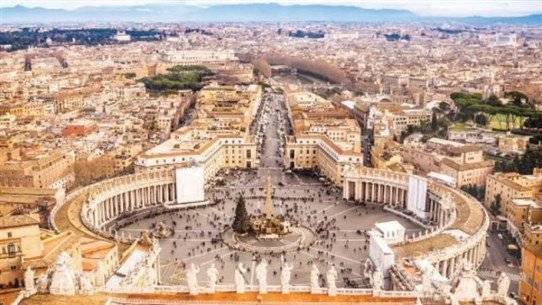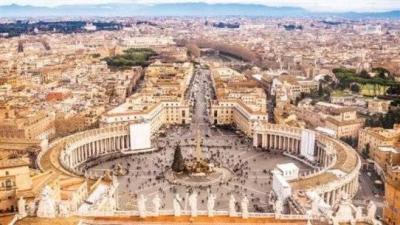The departing papal ambassador couldn’t resist throwing a stone into the swamp of Lebanese political life. Alongside the unfriendly attempts to agree on a "weakly bonded" Maronite president fitting Jumblatt's pivot, inspired by the era of Syrian tutelage and aligning with Hezbollah's desire to prolong the crisis for easier digesting after the bite, Ambassador Spiteri's words brought us back to the essence of the issue with his call for a creative pluralistic formula to renew coexistence in Lebanon. Those who know Ambassador Spiteri understand that he does not speak lightly. He is deeply invested in the Lebanese issue as much as he is knowledgeable about the concerns of Eastern Christians. He knows that what he says is taken as a direction for navigation, or reliance on the Vatican's commitment to help change a situation it considers catastrophic for the future of Lebanon and its Christians.
Surely, there will be those who will not tire of citing Stalin's question to Churchill when he told him at the Yalta Conference in 1945 that the Pope declared war on Hitler: how many tanks does the Vatican have? However, this will not diminish the value of the position expressed by the apostolic nuncio nor weaken the resolve of those seeking real, salvatory solutions, rather than postponements and patch-ups that citizens pay for every day through poverty and deprivation, which in turn bring opportunists and the weak of spirit to positions of responsibility to become puppets or play the role of Trojan horses, relinquishing what remains of the state's sovereignty and dignity.
The papal ambassador reveals no secret when he wishes that the Lebanese reach a new formula to organize their presence together. This has become a desire for many after the last serious and sincere attempt to mend the rift, heal the wounds of war, and restore the sovereignty of the unifying state failed, due to the system's overturning of the Taif Agreement, transforming it into an open plunder and a means to achieve political and sectarian dominance.
Seventy years of Lebanon's independent existence, most of which were spent in hot and cold civil wars with hundreds of thousands of victims and displaced persons, have ended with the fragmentation of the central state, loss of sovereignty, economic collapse, and the migration of millions of Lebanese, not only in search of better opportunities but also out of despair from the state of lawlessness that puts the country in jeopardy whenever the regional winds blow and the internal dynamics harmonize with external forces to leap over national loyalty.
This time frame is sufficient to conclude that the formula has failed in its role in both of its republics, and it makes no difference whether we attribute the reason to the idea of "Greater Lebanon," or to the foundational text insufficient to understand the composition of society and the difficulty of forming a nation and a state from a mosaic of sects with conflicting histories and cultures more than they are harmonious, or to the individuals who betrayed the spirit of the text, interpreting it according to their whims and the motivations of their groups and the lowliness of the powerful among them, thus preventing sincere attempts to build a state that many thought could be solved through "understanding and mutual agreement," by elevating the common interest, and establishing a citizen state.
The ball is in the court of the Lebanese to activate the Vatican's support for them if they "invent a formula that preserves pluralism." The Holy See has reached the conclusion that the current Lebanon is dead, but burying it is not possible without a new social contract that restores hope for the future to all Lebanese, away from illusions. The Vatican does not have tanks or armies to impose a formula or support any team. It has its moral weight and the need for a secure life, embodied by Patriarch Raï’s demand for "neutrality." However, Rome’s diplomacy, sensing the obstacles, seeks to round the corners and possibly change the nomenclature in the hope that its essence forms the guarantee of any pluralistic system capable of life.




